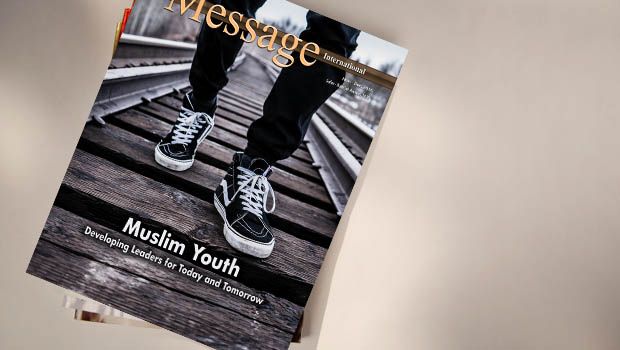“The youth of today are the leaders of tomorrow.” This concept has been drilled into our heads. Both in Islamic contexts and elsewhere, we hear about youth potential and how one day they will be leaders of society. While experience and maturity is important, the role of Muslim youth is not to sit back and wait for the future to arrive. Prophet Muhammad, peace be upon him, told all Muslims that when we see something wrong, we should first change it with our hands. If we cannot change it with our hands, then change it with our tongues, by speaking up, and if we cannot do that, then at the very least we must recognize that evil and in our hearts, support changing the situation.
Young Muslims presents and stresses core concepts of Islamic character and leadership, helping youth deepen their understanding of Islam and implement virtuous traits crucial to their success
Muslim youth in America face challenges that can stifle their potential. One of the biggest challenges is the lack of necessary Islamic knowledge. Oftentimes Muslim youth in America are taught only the basics of their faith and sometimes not even that. They typically learn how to read and write Arabic without learning the meaning. It is no mystery why many young Muslims are not confident in their faith. Many do not understand Arabic enough to understand the Quran for themselves. Their own holy book can seem strange and foreign. If they want to truly understand their faith, they must go out of their way to seek Islamic knowledge.
Another hurdle for Muslim youth in America is the lack of support in Muslim communities. Mosques sometimes feel to young people like a place of judgment and close-minded attitudes. Mosques are meant to be community centers where anyone can find help and support. Sadly, youth find that the issues they deal with are considered by adults to be too taboo or uncomfortable to discuss amongst Muslims. Youth end up turning to other sources for guidance, whether peers, social media gurus, or non-Muslim teachers or advisers. Their advice, while often well-intended, may contradict Islamic principles. Who can blame youth for taking that advice when Muslim mentors aren’t available to give them credible information and guidance suitable for young Muslims?
Muslim youth are also constantly surrounded by vulgarity in pop culture. Every day they are exposed to music, movies, TV shows, and media filled with obscene messages. Living in a culture where modesty is rejected and “doing whatever you want” is celebrated can drain anyone, especially young people who are still building identities and figuring out their boundaries. Young Muslims in America are in a constant struggle between being accepted by society and firmly adhering to their faith. It is easier to follow the crowd and gain acceptance than to reject societal norms and risk being an outcast.
Despite the challenges, Muslim American youth are part of history in the making. Being a Muslim in America today means you are contributing to the ever-changing portrait of Islam in America. Whether through standing up and driving change, or staying silent and allowing politicians, journalists, or even Islamophobes to speak for them, Muslim youth affect the image of Islam in America every day. The passion and energy of youth is an incredible asset. Young people can accomplish amazing feats in life when their efforts are channeled correctly. Some of the most esteemed companions of the Prophet (pbuh) gained respect and leadership positions at a young age. They used their passion and youth to help their communities grow and prosper. Their age did not limit them, instead their youth helped them further contribute to society. In order for Muslim youth to succeed as they have in the past, they must be given the proper tools.
Safe spaces are crucial for developing dynamic youth. Muslim youth need to be in an environment where good deeds and good character are celebrated, somewhere they can to turn to receive wholesome Islamic advice without being looked down upon for their flaws. Being around people who encourage good deeds and discourage bad is a positive form of peer pressure that builds confidence and strength of character. Communities can implement this by encouraging youth to participate in community affairs, providing space to grow and learn from fellow community members while contributing to discussions and activism with their unique perspectives.
Young Muslims, a division of ICNA, connects Muslim youth throughout America. This grassroots organization provides the tools youth need to grow and develop. YM presents and stresses core concepts of Islamic character and leadership, helping youth deepen their understanding of Islam and implement virtuous traits crucial to their success. Through weekly meetings, YM gives youth the opportunity to explore their faith and build bonds of companionship that last a lifetime. Organizations like YM give Muslim youth the tools they need to become the leaders of today and tomorrow.





